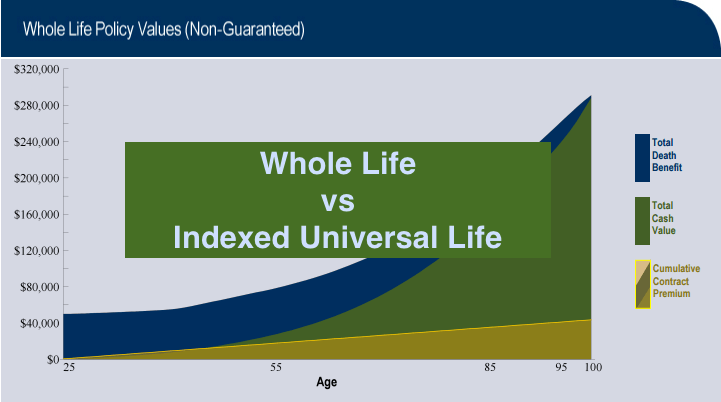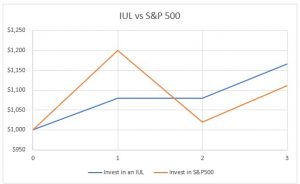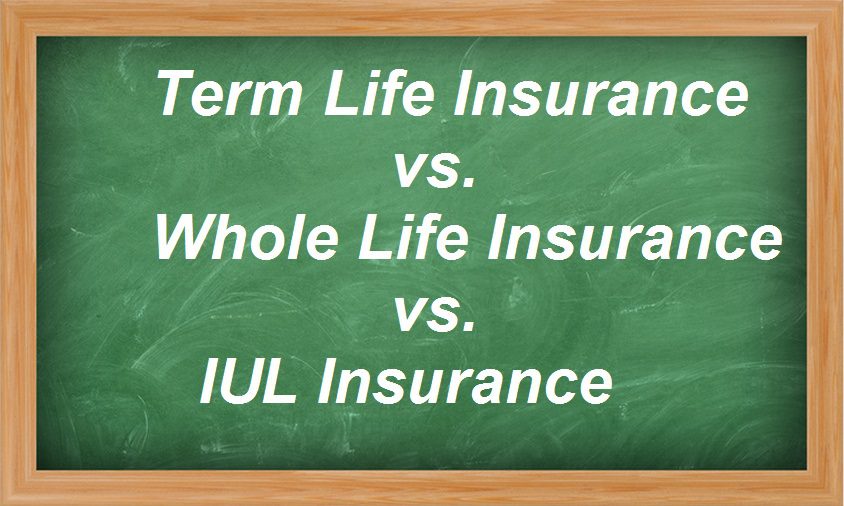All Categories
Featured
Table of Contents
1), frequently in an attempt to beat their classification averages. This is a straw male disagreement, and one IUL folks love to make. Do they compare the IUL to something like the Lead Total Supply Market Fund Admiral Show no lots, an expenditure proportion (EMERGENCY ROOM) of 5 basis points, a turn over ratio of 4.3%, and a phenomenal tax-efficient record of distributions? No, they compare it to some horrible actively taken care of fund with an 8% lots, a 2% EMERGENCY ROOM, an 80% turnover proportion, and an awful record of short-term capital gain circulations.
Mutual funds often make annual taxable distributions to fund owners, also when the value of their fund has actually decreased in worth. Shared funds not just require revenue coverage (and the resulting yearly tax) when the common fund is increasing in value, yet can likewise impose earnings taxes in a year when the fund has actually gone down in worth.
That's not exactly how common funds function. You can tax-manage the fund, harvesting losses and gains in order to decrease taxable distributions to the capitalists, but that isn't somehow mosting likely to transform the reported return of the fund. Only Bernie Madoff kinds can do that. IULs avoid myriad tax traps. The ownership of common funds might need the common fund proprietor to pay approximated taxes.

IULs are easy to place so that, at the proprietor's fatality, the beneficiary is exempt to either income or estate taxes. The very same tax obligation reduction strategies do not function nearly as well with common funds. There are various, typically expensive, tax traps linked with the moment trading of mutual fund shares, traps that do not apply to indexed life insurance policy.
Chances aren't very high that you're mosting likely to be subject to the AMT due to your common fund distributions if you aren't without them. The rest of this one is half-truths at finest. While it is true that there is no revenue tax obligation due to your successors when they acquire the profits of your IUL plan, it is also real that there is no income tax obligation due to your beneficiaries when they inherit a mutual fund in a taxable account from you.
Iul Life Insurance Companies
There are much better ways to prevent estate tax obligation issues than acquiring financial investments with reduced returns. Common funds may cause income taxes of Social Safety benefits.

The growth within the IUL is tax-deferred and may be taken as tax obligation cost-free revenue through financings. The policy proprietor (vs. the common fund supervisor) is in control of his or her reportable revenue, hence allowing them to minimize or even eliminate the taxation of their Social Safety and security advantages. This set is terrific.
Here's an additional minimal issue. It holds true if you purchase a mutual fund for claim $10 per share just before the circulation day, and it disperses a $0.50 circulation, you are then going to owe tax obligations (most likely 7-10 cents per share) despite the reality that you haven't yet had any kind of gains.
Yet in the long run, it's truly about the after-tax return, not just how much you pay in tax obligations. You are going to pay even more in tax obligations by using a taxed account than if you acquire life insurance policy. You're also probably going to have even more cash after paying those tax obligations. The record-keeping requirements for having common funds are considerably a lot more complex.
With an IUL, one's documents are kept by the insurance business, duplicates of annual statements are sent by mail to the proprietor, and distributions (if any kind of) are completed and reported at year end. This one is likewise kind of silly. Of program you ought to maintain your tax documents in case of an audit.
What's The Difference Between Universal Life And Whole Life Insurance
Barely a factor to buy life insurance coverage. Common funds are typically component of a decedent's probated estate.
Furthermore, they are subject to the delays and expenses of probate. The profits of the IUL policy, on the other hand, is constantly a non-probate circulation that passes outside of probate straight to one's called beneficiaries, and is consequently not subject to one's posthumous financial institutions, undesirable public disclosure, or comparable delays and expenses.
Medicaid incompetency and life time income. An IUL can provide their owners with a stream of revenue for their entire lifetime, no matter of exactly how lengthy they live.

This is advantageous when arranging one's events, and converting properties to income before a retirement home arrest. Shared funds can not be converted in a comparable manner, and are usually thought about countable Medicaid properties. This is one more dumb one supporting that bad individuals (you understand, the ones who require Medicaid, a federal government program for the inadequate, to spend for their retirement home) ought to utilize IUL as opposed to common funds.
Best Indexed Universal Life Companies
And life insurance policy looks horrible when compared rather versus a retirement account. Second, individuals that have money to buy IUL over and beyond their pension are mosting likely to need to be dreadful at managing cash in order to ever before get approved for Medicaid to pay for their assisted living home expenses.
Chronic and terminal disease cyclist. All policies will certainly allow an owner's very easy access to cash from their policy, commonly forgoing any kind of abandonment penalties when such individuals suffer a serious ailment, require at-home treatment, or end up being confined to a retirement home. Common funds do not supply a similar waiver when contingent deferred sales fees still relate to a common fund account whose owner requires to offer some shares to money the prices of such a remain.
Universal Vs Term Life
Yet you obtain to pay even more for that benefit (biker) with an insurance plan. What a great deal! Indexed universal life insurance offers survivor benefit to the beneficiaries of the IUL proprietors, and neither the owner nor the beneficiary can ever before shed cash because of a down market. Mutual funds give no such guarantees or survivor benefit of any kind.
Currently, ask yourself, do you in fact require or want a survivor benefit? I certainly do not need one after I get to monetary freedom. Do I desire one? I expect if it were cheap enough. Obviously, it isn't cheap. On average, a purchaser of life insurance policy spends for real cost of the life insurance policy benefit, plus the prices of the plan, plus the revenues of the insurance coverage business.
Indexed Universal Life Unleashed
I'm not totally certain why Mr. Morais included the whole "you can not shed money" again here as it was covered fairly well in # 1. He just wanted to repeat the ideal selling factor for these things I mean. Once more, you don't shed nominal dollars, yet you can shed real dollars, in addition to face serious chance expense as a result of reduced returns.

An indexed global life insurance policy policy owner may exchange their policy for a totally various policy without causing income tax obligations. A shared fund proprietor can not move funds from one mutual fund firm to one more without offering his shares at the former (thus setting off a taxable occasion), and redeeming new shares at the latter, often subject to sales fees at both.
While it holds true that you can exchange one insurance coverage for another, the reason that people do this is that the initial one is such an awful policy that also after getting a new one and experiencing the early, unfavorable return years, you'll still appear ahead. If they were sold the right policy the very first time, they should not have any need to ever before trade it and undergo the early, unfavorable return years once again.
Latest Posts
Adjustable Life Insurance Vs Universal Life Insurance
Iu L
Universal Retirement Protection